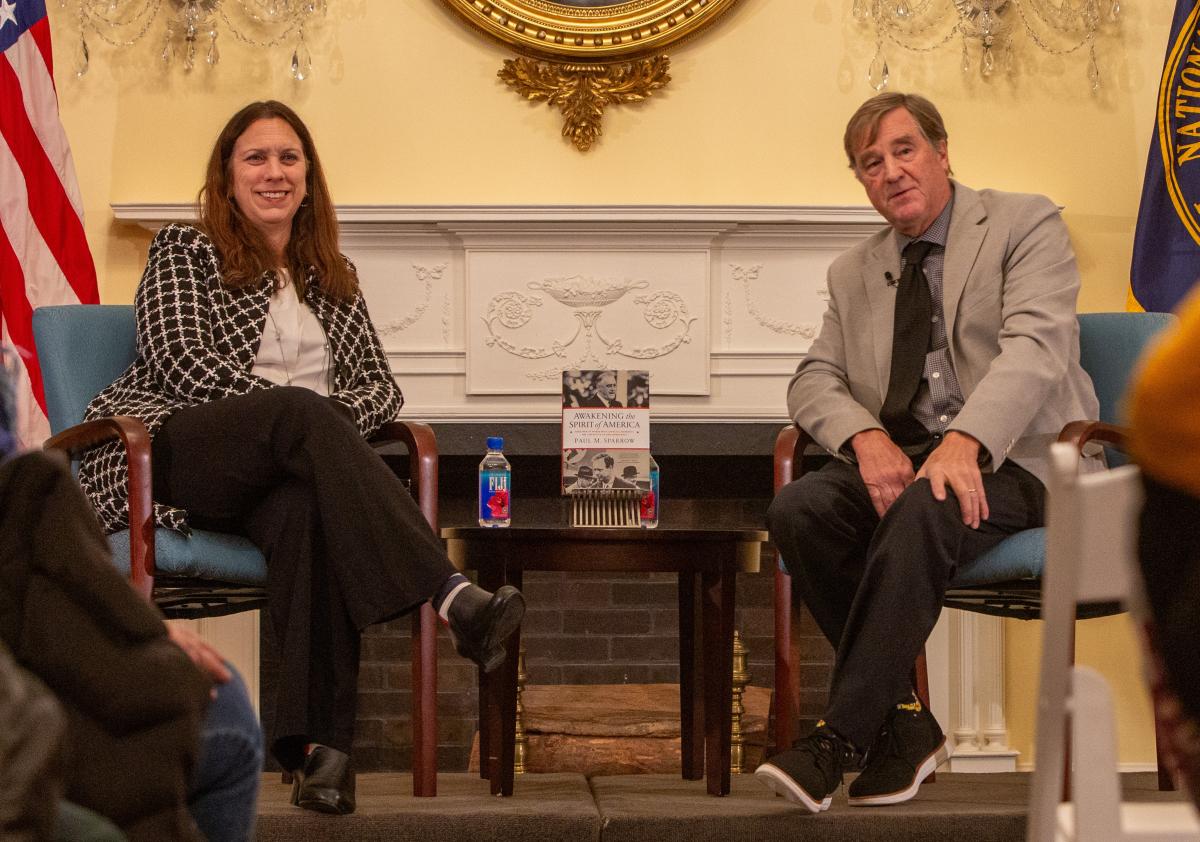
Archivist of the United States Hosts Book Talk With Author Paul Sparrow
By Angi Betran | National Archives News
WASHINGTON, December 13, 2024 — Archivist of the United States Dr. Colleen Shogan sat down with author Paul M. Sparrow on December 5, at the National Archives in Washington, DC.
Sparrow is a former Director of the Franklin D. Roosevelt Presidential Library and Museum, and the two met to discuss his book, Awakening the Spirit of America.
The discussion focused on how President Franklin D. Roosevelt overcame opposition to U.S. involvement in World War II from many Americans, including famous aviator Charles Lindbergh, to preserve what he termed “the Spirit of America.”
“When Germany invaded Poland in 1939, 70 percent of Americans didn’t want to get involved in the war, support England, or help the nation's allies,” said Sparrow. “They wanted nothing to do with the war.” He explained how, in contrast, Roosevelt felt America had a moral obligation to be a defender of freedom everywhere in the world.
Shogan asked Sparrow to explain who Charles Lindbergh was and why his opinion was so valued in the United States.
Sparrow recounted how Lindbergh, an innovator of aviation technologies, became a global icon and celebrity when he flew solo across the Atlantic Ocean in the Spirit of St. Louis. Lindbergh was also a spokesperson for the isolationist movement. At the start of World War II, Lindbergh began publicly advocating for Americans not to take the side of the Allies because he believed that if Americans fought for democracy abroad, they would end up losing it at home.
“He was speaking for a majority of Americans in the beginning,” Sparrow said. “Seventy percent of Americans totally agreed with his point of view, so it was a real challenge for Roosevelt.”
During the discussion, Shogan noted that people were wildly opposed to American intervention in the European war, but as things progressed, public opinion flipped, even before the attack on Pearl Harbor. She questioned how much of that was due to Roosevelt’s rhetoric.
“I think it was very significant in the transformation of the American mindset, but more importantly, it was that he understood how to use what was happening in the world around him and condense it down and articulate it in such a way that people could understand what he was talking about,” Sparrow said. “I think one of the things he really did was awaken the spirit of America; he gave Americans back their mojo. He convinced them that we are a great country, we have a role to play on the world stage, and we will play it to the utmost.”
The National Archives holds an extensive collection of World War II records, films and photos. Search the National Archives Catalog using keywords associated with World War II to find relevant records.
You can view the full discussion on the National Archives YouTube Channel.
Visit the National Archives Calendar of Events for information on future events.
